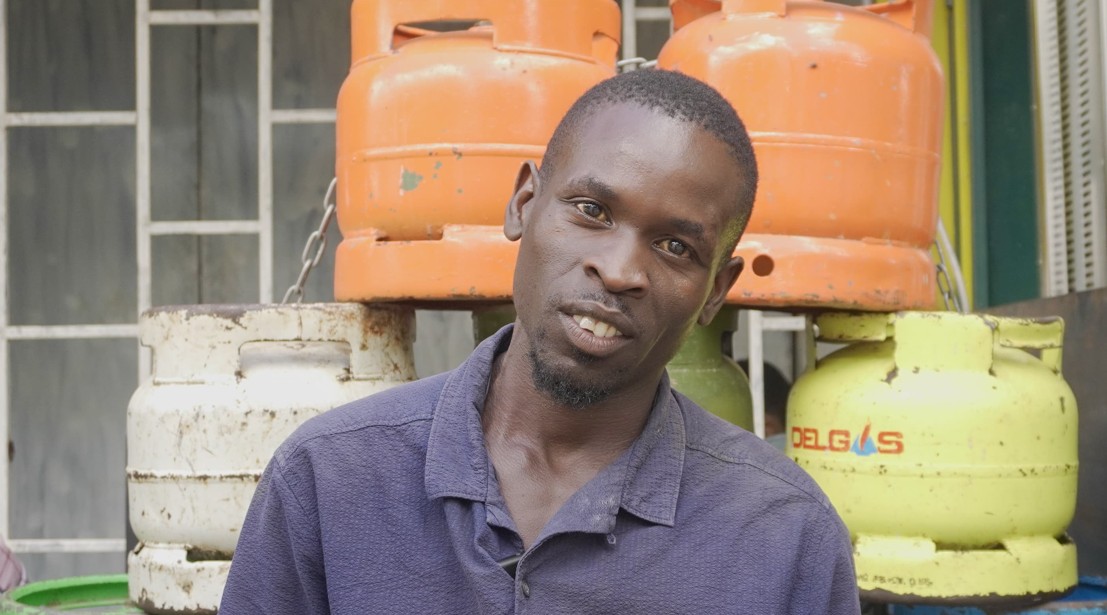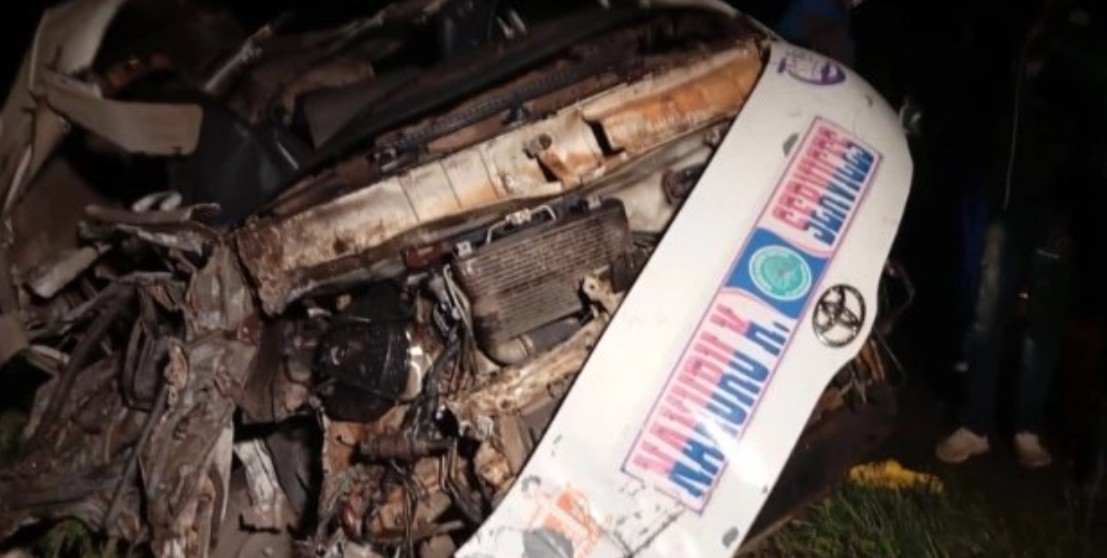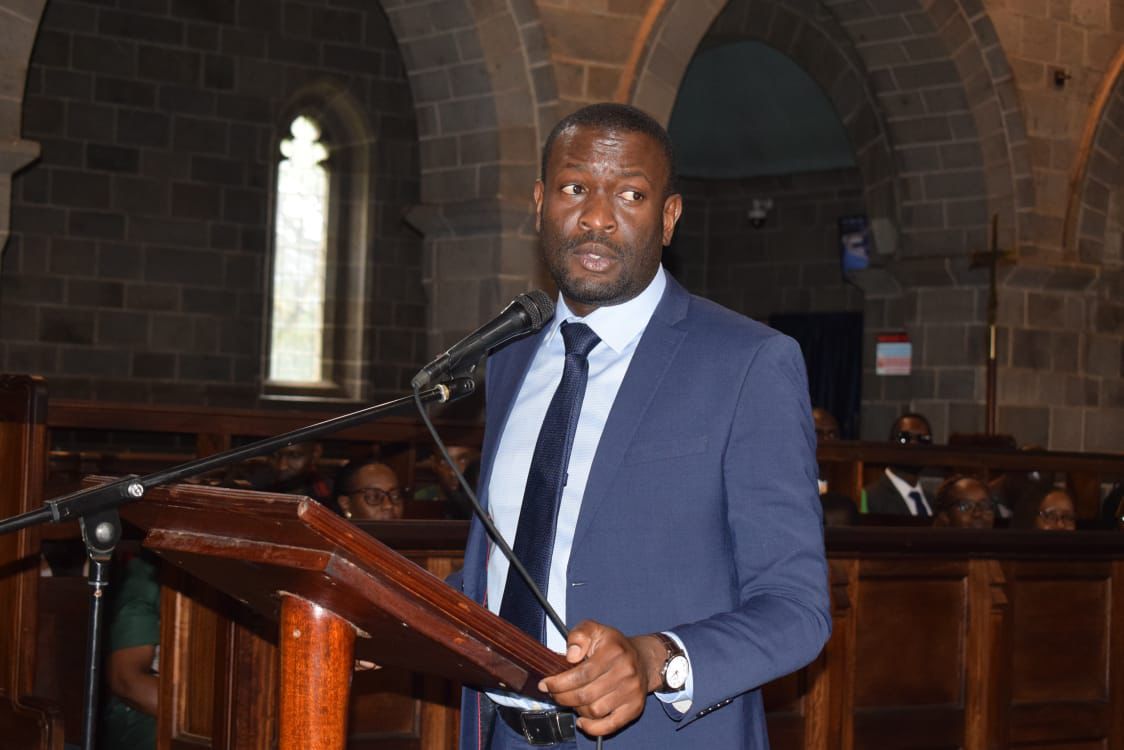It was cold-blooded killing! Judge says, convicts security guard over murder of Isiolo activist
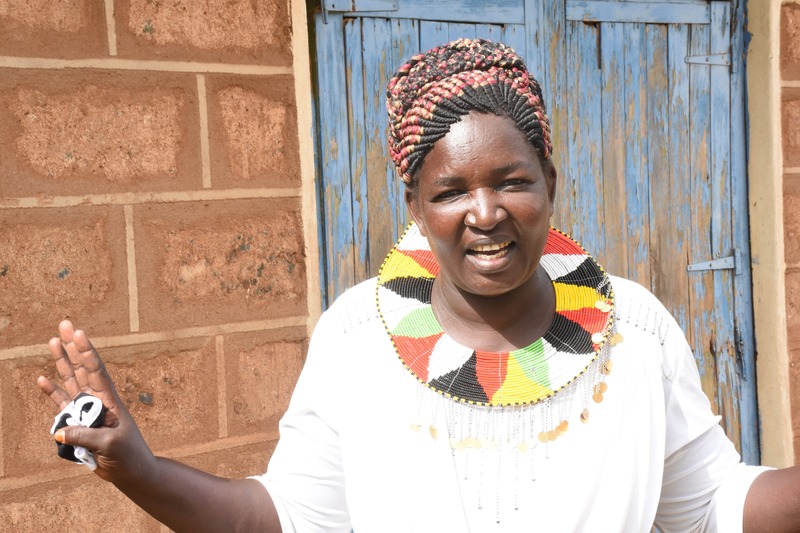
The post-mortem had showed that Elizabeth was defenseless after her hand was cut, meaning the subsequent stabs happened while she was vulnerable.
The Meru High Court has convicted Patrick Naweet, the suspect in the brutal murder of Isiolo human rights activist Elizabeth Ibrahim Ekaru over a suspected land dispute at Kambi Garba 30 months ago.
The activist had accompanied Naweet to resolve a boundary dispute between their plots, shortly after attending a burial ceremony at the village, when she was stabbed to death using a dagger knife, within the same area where her husband and son were killed 13 years ago following inter-community clashes.
More To Read
- KDF, Isiolo leaders to hold talks to resolve longstanding Burat land row
- Murkomen vows justice for Ang'ata Barikoi victims as state cracks down on violence instigators
- Interior PS Omollo faces Sh500,000 fine, arrest for snubbing summons
- Police headquarters operated without title deed for over 60 years, MPs told
- Dozens of families left homeless as bulldozers demolish homes in Nairobi's Kayole
- Mombasa community demands government action to resolve land dispute
The suspect, who at the time worked as a security guard at a hotel in Isiolo town, cheated death after police officers rescued him from the hands of an irate mob that was baying for his blood over the heinous January 3, 2022 incident, though with injuries.
The 50-year-old pleaded not guilty to the murder charge with the prosecution lining up a total of 11 witnesses including deceased relatives, investigators, administrators and experts.
An autopsy conducted three days later by Dr Mohammed Abdikadir, a medical officer at Isiolo County Referral Hospital, showed multiple body injuries including deep cuts on her back, cheek, thighs, forearm and palm and listed excessive blood loss due to cutting of major blood vessels as the cause of Elizabeth's death.
Exhibits collected from the crime scene including the suspect's shoe, murder weapon and a blood-stained multi-coloured dress that the deceased was wearing at the time of the attack were analyzed at the Government Chemist in Nairobi.
A February 28, 2023 report showed that the DNA profile generated from blood stains on the dress matched that on a nail clipping that had been extracted from the activist, with the one on the suspect's shoe and killer weapon matching the DNA profile for both of them, linking Naweet to the murder.
From his denial of the offence when he was first arraigned in court to his sworn testimony where he admitted attacking the activist but in self-defence, Naweet's defence and efforts to have the charge reduced to manslaughter over alleged provocation faced an inevitable collapse.
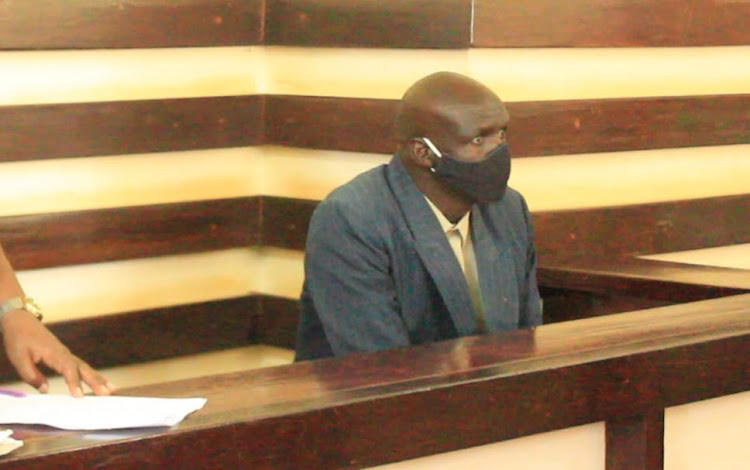 Patrick Naweet who was August 15, 2024, convicted by the Meru High Court over the killing of Isiolo-based human rights activist Elizabeth Ibrahim Ekaru at Kambi Garba on January 3, 2024. (Handout)
Patrick Naweet who was August 15, 2024, convicted by the Meru High Court over the killing of Isiolo-based human rights activist Elizabeth Ibrahim Ekaru at Kambi Garba on January 3, 2024. (Handout)
He told the court that the late activist confronted him after she discovered that he had informed a local chief of her alleged encroachment into his plot and that they both proceeded to the said plots to iron things out.
The deceased was in company of a minor who waited for the duo at the entrance to the plots after they went in.
The accused said they could not agree on the boundary and that a furious Elizabeth allegedly slapped him and hit him with a club (rungu) that she had reportedly grabbed from him before overpowering him to the ground.
"I fell down. She lay over me and held me by the neck while hitting me with a stone which occasioned bleeding on my head... I stabbed her in the thigh and she sustained a cut on her hand while trying to grab the knife... I had no other way of defending myself," Naweet said.
During his submissions, the accused did not report any mob justice incident to the police and neither did he furnish the court with medical documents with respect to the alleged injuries he suffered.
Shockingly, the accused told the court that he had no intention to kill the activist and that she died due to negligence on the part of the residents who rushed to the scene for "leaving her bleeding profusely for a long time and not rushing her to the hospital" in time.
The defence counsel at some point told the court that a Turkana man could not condone audacity of a woman to stand up against him, argue with him and assault him, an outright case of male chauvinism which propagates Gender Based Violence.
Justice Edward Muriithi made a determination on various issues including whether the offence of murder had been proven by the prosecution, whether the act was committed with malice aforethought and if self defence claims were justifiable.
Unreasonable force
The prosecution had in its submission argued that in self-defence, the force used must be necessary and poked holes in accused defence saying Naweet did not complain of any health issue or had no visible mark of injury on his forehead during arraignment showing he did not suffer major injuries.
The State counsel insisted that excessive force was used resulting to multiple injuries on the deceased body, showing that the accused had intent to kill the activist and that "no human could have survived such a vicious attack".
The court gave the accused the benefit of doubt in his argument that he faced a threat from the activist as it was not challenged in court and the Grade Five pupil, they were with was looking in a different direction when commotion ensued on the material day.
The minor's attention came after she heard the auntie scream and on looking, saw the woman fall to the ground.
"There is no evidence for the court to hold that the accused, whether by objective or subjective test, did not face any threat or attack from the deceased to trigger self-defence".
The Judge, however, insisted that in self-defence, the use of force is limited only to such which is reasonable to forestall or repel the attack or threatened attack.
A determination whether the accused using excessive force while responding to the provocation was also made by the court that found Naweet narration of being attacked and overpowered by a woman of normal built as pack of lies.
The Judge relied on the autopsy report that indicated "If it is a long knife and the person who stabs is strong, the injury may be deep as 21 cm." Another wound was 10cm deep. The deceased sustained five stab wounds, four them being deep cuts.
While the accused reported stabbing the woman on the thigh and the hand during the struggle, medical evidence showed multiple stabbings and cuts.
Cold blooded killing
The court found that the injuries were not inflicted by a person who had been overpowered by an attacker and who was allegedly seeking to disentangle himself.
"The multiple penetrating wounds show a ferocious attack calculated to disable or maim his victim so completely that the stab wounds injuries are aimed at the back of the chest and her thighs," Justice Muriithi said.
There was no evidence that the deceased had attacked the accused by any weapon to warrant the disproportionate multiple stabbing while defenseless, the court said.
The post-mortem had showed that Elizabeth was defenseless after her hand was cut, meaning the subsequent stabs happened while she was vulnerable.
The Judge found the accused as being insensitive for saying that the victim would not have died had members of the public who responded to the screams rushed her to hospital instead of beating him up in mob justice.
Provoked
He said one could not create a dire situation and then seek to blame the consequences on the victim or third parties who fail or are unable to remedy or cope with the situation.
Did he kill out of provocation and was beating with a stone and a slap sufficient wrongful act of provocation?
The court found that the acts of multiple stabbing on the deceased, which the accused admitted, were unlawful.
It was also established that the accused had malice aforethought because as any reasonable man, the court said, he must have known that death or grievous harm would have occasioned the victim of his vicious stabbing with a dagger knife.
"The defences of provocation and self-defence were negated by the unnecessary, excessive and ferocious nature of the multiple injuries inflicted on the deceased. DNA evidence placed only the two at the scene, and there is no question that the accused occasioned the fatal injuries on the deceased".
The accused narration that the deceased hit him with a stone while strangling him was found impractical due to photographic evidence on the size of the deceased that was presented in court.
"The accused is not a man of small physical stature and it not conceivable that he could easily have been subdued by an ordinary built person as the deceased," Justice Muriithi said.
Malice aforethought was demonstrated by the obvious knowledge of the accused that the multiple injuries he inflicted on the deceased with his dagger knife would probably cause death or grievous harm.
"The attempt to take benefit from a duty of care upon the persons who responded to the attack to take the victim to hospital is a callous expression of his lack of remorse demonstrating his malicious indifference as to the result of his attack on the health of the victim".
The court found that the prosecution had proven the charge of murder against Patrick Naweet and consequently convicted him.
An order for mitigation and sentencing proceedings to be taken on September 5 before sentencing is done.
Top Stories Today



